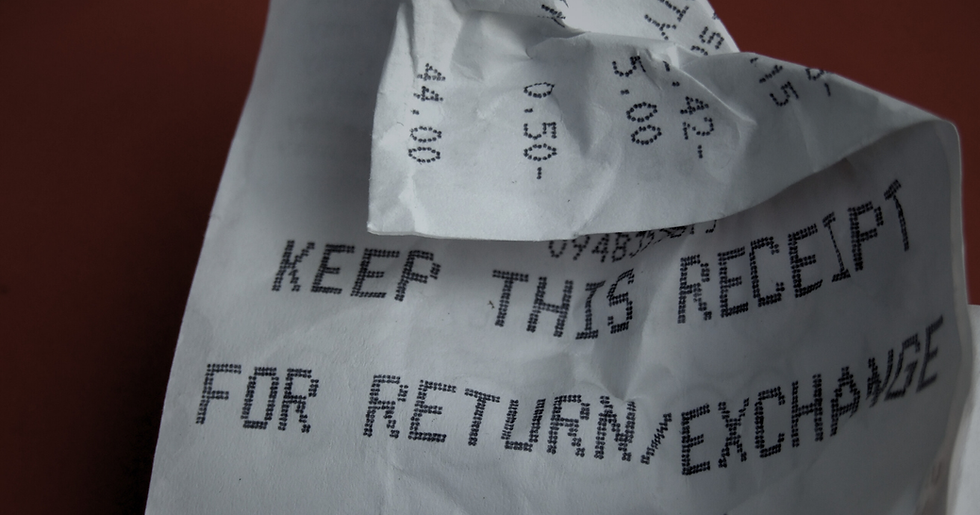Could the Truth Be Hiding in Plain Sight? Private Investigator Singapore on Unexpected Signs
- Sep 30, 2025
- 4 min read

Introduction: The Power of What We Overlook
Most people imagine secrets being hidden behind locked phones, late-night excuses, or mysterious trips. But what if the biggest red flags aren’t buried deep—they’re right in front of you, hiding in plain sight?
In Singapore, where work and social lives often overlap, many signs of secrecy or infidelity are easily brushed off as “just stress” or “nothing serious.” Yet experienced observers, like those in the field of a Private Investigator Singapore, note that the truth often slips out through the smallest, most ordinary details.
This article explores how everyday objects, behaviors, and routines—seemingly normal on the surface—could carry deeper meaning.
Section 1: Why “Plain Sight” Clues Are Easy to Miss
Familiarity blinds us:
When we see something every day, our brain normalises it. A new receipt, a random piece of clothing, or even a repeated story can escape attention.
Trust creates blind spots:
Most people don’t want to think badly of their partner, so they explain away oddities.
Busy Singapore lifestyles:
With packed schedules and fatigue, it’s easy to overlook subtle changes or details.
A Singapore Private Investigator will tell you: the most telling clues are rarely dramatic. Instead, they’re everyday items and habits that suddenly don’t add up.
Section 2: Common “In Plain Sight” Signs to Watch For
1. Unfamiliar Receipts or Transaction Records
A simple receipt left in a wallet, bag, or car may reveal dinners, hotel stays, or purchases that don’t match the routine story.
2. Items of Clothing or Accessories That Don’t Belong
A jacket, scarf, lipstick stains, or even a perfume scent could be brushed off as borrowed—but if it keeps happening, it may be worth asking questions.
3. New Routines That Lack Clear Reasons
Whether it’s extra gym sessions, “late nights at work,” or new hobbies, changes in schedule that lack context can sometimes signal more.
4. Excessive Secrecy Around Common Objects
Taking a phone everywhere—even to the bathroom—or being defensive about bags, laptops, or cars could be small signs of bigger concerns.
5. Overexplaining or Contradicting Stories
When someone repeats a story but the details change—or they give too many unnecessary explanations—it could be a subconscious slip.
Section 3: Why “Small Things” Add Up
Individually, these clues may seem harmless. Together, however, they can build a pattern. This is why Private Detective observations often rely on consistency: is the behavior happening once, or becoming a repeated habit?
In Singapore’s tightly connected environment, with receipts, transport records, and even digital trails, it’s hard to keep inconsistencies perfectly hidden.
Section 4: Case Study Examples (Generalised for Privacy)
Case 1: The Extra Gym Bag
One partner noticed their spouse kept a second gym bag in the car, even though they only went to the gym once a week. Upon closer observation, the bag was used as a cover for unexplained outings.
Case 2: The “Forgotten” Receipts
A crumpled café receipt found multiple times pointed to regular meet-ups in a location far from home or work.
Case 3: The Mystery Item
A woman found earrings in her husband’s laptop bag, which he brushed off as belonging to a colleague. The same type of incident happened again—raising alarm.
Such “plain sight” items became the starting point for bigger discoveries.
Section 5: The Psychology Behind Hiding in Plain Sight
Why do people leave such obvious clues?
Subconscious carelessness: When someone grows too comfortable, they slip.
Testing boundaries: Some may subconsciously want to be caught.
Overconfidence: Believing their partner is too trusting or busy to notice.
Experts in the Singapore Private Investigator field note that emotional distance often makes these oversights more frequent.
Section 6: How to Approach Suspicion Without Overreacting
Not every odd item or unfamiliar receipt means trouble. Here’s how to handle it:
Stay calm – jumping to conclusions can damage trust.
Observe for patterns – a single incident may be harmless, but repetition signals something deeper.
Communicate openly – sometimes, a direct but respectful conversation clears the air.
Document, don’t confront immediately – keeping track helps distinguish real red flags from coincidence.
Section 7: Why Plain Sight Clues Still Matter in the Digital Age
Even with private browsing, encrypted chats, and locked phones, physical world clues still slip through. A misplaced receipt or unexplained purchase often tells more than hours of online sleuthing.
In Singapore, where digital payments and e-receipts are common, it’s easy to think all records are hidden—but habits, spending, and tangible items often leave clearer evidence.
Section 8: Insights From Private Investigator Singapore
From years of observing, here are the most consistent lessons:
Clarity comes from patterns, not single clues
Trust your instincts but verify with facts
Details overlooked at first often become the most telling later
As one Singapore Private Investigator noted: “Secrets have a way of slipping out in the everyday. People rarely hide everything perfectly.”
Conclusion: Don’t Ignore What’s Right in Front of You
When doubts arise, the most powerful evidence may not be in texts, emails, or apps—it may already be in your hands.
So, the next time you see something that feels “off” but too small to matter, ask yourself: is this really nothing, or could it be something hidden in plain sight?
Need Help Uncovering the Truth?
Contact Asia Top Investigation in Singapore
🔍 Confidential. Reliable. Legal. Discover the truth with professionals you can trust.
🌐 Website: www.asiatopinvestigation.com
📞 Phone: +65 8820 0007
📧 Email: vt@asiatopinvestigation.com




Comments